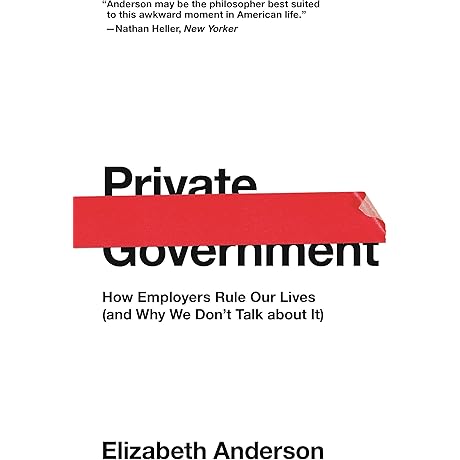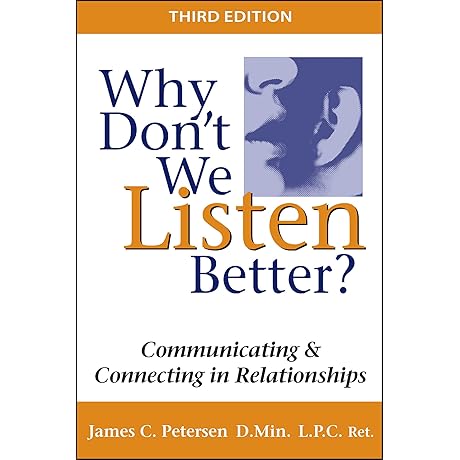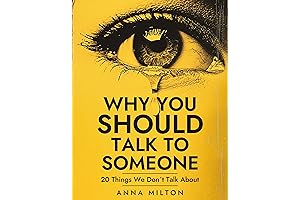· communication · 8 min read
Unveiling the Reasons Why We Don't Talk: Exploring Underlying Factors and Solutions
Delve into the captivating world of human communication and discover the intriguing reasons why we often refrain from expressing ourselves openly. This expertly crafted article sheds light on the complexities of unspoken words and offers practical strategies to foster healthier, more fulfilling conversations.
Communication lies at the core of human interaction, facilitating the exchange of ideas, emotions, and experiences. Yet, despite its profound importance, we often find ourselves inhibited, our thoughts and feelings remaining unspoken. In this comprehensive article, we embark on a journey to uncover the myriad reasons why we don't talk and explore transformative approaches to break free from the constraints of silence.
Overview

PROS
- Lucidly reveals the systemic influence employers wield in shaping our lives.
- Provides a thought-provoking examination of the hidden power dynamics in modern workplaces.
CONS
- Some sections may require careful reading for comprehension.
- Focuses primarily on the United States, limiting its universal applicability.
Unveiling the pervasive yet often overlooked influence of employers on our lives, Private Government is an eye-opening read. It delves into the intricate web of rules and regulations that govern workplaces, exposing the ways in which employers exert considerable control over our daily activities. The book masterfully combines rigorous research with real-life examples, painting a vivid picture of the power imbalance that exists between employers and employees.
The author's in-depth analysis exposes the hidden tactics companies use to shape our work lives, from setting dress codes to monitoring our online activities. Private Government challenges us to critically examine the employer-employee relationship, prompting us to question the extent of corporate authority. Whether you're an employee seeking to understand your workplace dynamics or an individual interested in the broader implications of corporate power, this book offers valuable insights and prompts thought-provoking conversations about our working world.

PROS
- Intimate portrayal of the band's journey and struggles
- Exclusive behind-the-scenes footage and interviews
- Insightful analysis of their music and creative process
CONS
- May be too niche for non-fans
- Lacks in-depth coverage of their personal lives
Step into the spotlight with 'Why Don't We: In the Limelight,' a captivating documentary that chronicles the rise of the popular boy band. Through exclusive interviews and behind-the-scenes footage, this film takes you on an intimate journey with the group as they navigate the highs and lows of fame.
The documentary delves into the creative process behind their music, showcasing their passion for songwriting and performance. While it focuses primarily on their professional endeavors, it also offers glimpses into their personal lives, giving fans a deeper understanding of the individuals behind the band. However, some may find the coverage of their personal lives to be somewhat limited.

PROS
- Improves communication and listening skills between individuals in relationships.
- Provides educational insights to better understand the aspects of listening.
CONS
- Some readers might find the narrative repetitive.
- May be more suitable for individuals in couples relationships than other types of relationships.
The third edition of {"Why Don't We Listen Better?" }delves into the intricacies of listening and communication, addressing the obstacles that hinder our ability to connect and interact effectively. The book cohesively blends research-based findings with practical exercises, facilitating the development of authentic listening skills and fostering meaningful connections within relationships.
This revised edition offers fresh insights, emphasizing the influence of technology and the need for mindful listening in an era defined by constant digital distractions. The book's relatable anecdotes and engaging writing style make it an accessible read, enabling readers to absorb valuable lessons while gaining a fresh perspective on listening. Whether you seek to enhance your communication skills within romantic relationships, familial bonds, or professional interactions, this book provides valuable guidance.

PROS
- Provides a roadmap for navigating sensitive topics that are often left unspoken.
- Empowers individuals to break down barriers and communicate openly.
CONS
- May not resonate with everyone, as some topics may be too confronting for certain readers.
- While comprehensive, it might lack depth in addressing specific challenges related to particular unspoken issues.
In the realm of communication, there are often unspoken truths that linger in the shadows, casting a veil over our interactions. 'Why You Should Talk To Someone' emerges as a beacon of light, illuminating these hidden facets and encouraging open dialogue. This insightful book delves into 20 sensitive subjects that we often shy away from discussing, providing a roadmap for navigating these uncharted territories.
Through personal anecdotes and expert insights, the author skillfully unravels the complexities of topics ranging from mental health to finances and relationships. Each chapter unravels a different unspoken truth, revealing its impact on our lives and offering practical strategies for initiating meaningful conversations. By breaking down these barriers, the book empowers individuals to delve deeper into their own experiences and foster genuine connections with others.

PROS
- Offers practical tips and techniques to improve listening skills.
- Explores the obstacles to effective listening and provides strategies to overcome them
CONS
- Some readers may find the content to be a bit too academic or technical.
- The book's focus on relationships may not appeal to readers seeking to improve listening skills in other contexts.
In her book, "Why Don't We Listen Better? Communicating & Connecting in Relationships," Kate Murphy delves into the art of active listening, exploring its significance in fostering stronger connections and relationships. Murphy emphasizes the importance of listening to truly understand others, rather than simply waiting for our turn to speak. She unpacks the roadblocks to effective listening, such as distractions, biases, and assumptions, and offers practical techniques to overcome these challenges.
Murphy's writing style is engaging and accessible, drawing upon real-life examples and research studies to illustrate her points. She provides readers with a framework for mindful listening, encouraging them to be present, attentive, and empathetic in their conversations. While the book primarily centers around romantic relationships, Murphy's insights can be valuable in enhancing communication dynamics in various contexts, including friendships, family relationships, and professional settings.
In this thought-provoking discourse, we have delved into the intricate tapestry of human communication, exploring the reasons why we often choose to remain silent. We have uncovered the profound impact of societal norms, fear, and unresolved trauma on our ability to express ourselves openly. Recognizing the importance of fostering open and honest conversations, we have emphasized the power of empathy, active listening, and seeking professional support in overcoming the barriers to effective communication. By breaking the cycle of silence, we empower ourselves to build stronger relationships, foster personal growth, and create a more connected and understanding社会.
Frequently Asked Questions
Why do we sometimes choose to remain silent even when we have important thoughts or feelings to share?
Our silence can stem from a complex interplay of factors, including societal norms that discourage certain forms of expression, fear of judgment or rejection, and unresolved trauma that may hinder our ability to articulate our emotions.
How can we overcome the barriers to effective communication and foster more open and honest conversations?
Cultivating empathy, practicing active listening, and seeking professional support when necessary are crucial steps towards breaking the cycle of silence and building stronger, more fulfilling relationships.
What are the benefits of engaging in open and honest communication?
Open and honest communication fosters deeper connections, enhances personal growth, and creates a more understanding and empathetic社会.
How does societal pressure influence our willingness to express ourselves?
Societal norms can shape our perceptions of what is considered acceptable or unacceptable to say, leading us to suppress our thoughts and feelings to conform to expectations.
What role does fear play in inhibiting our communication?
Fear of judgment, rejection, or even physical harm can act as a powerful deterrent to self-expression, silencing our voices and preventing us from sharing our perspectives.








